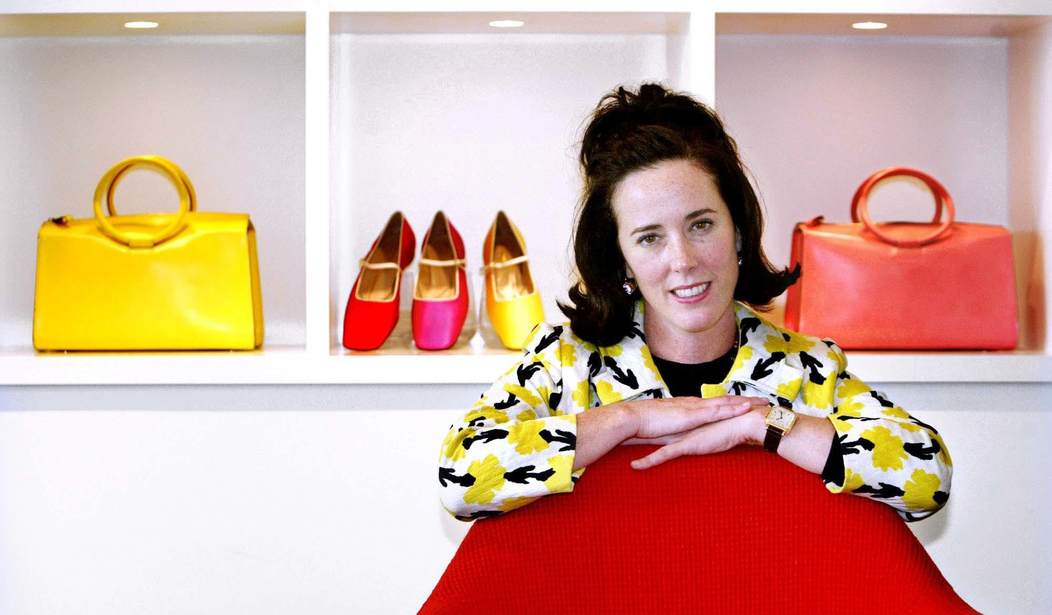Two recent celebrity suicides have highlighted the fact that the suicide rate has skyrocketed since the turn of the century, up a startling 25 percent between 1999 and 2016. The typical media reaction to this is to sentimentalize the deaths of the celebrities while making grand pronouncements about What’s Wrong with Society. The God people declare we have turned away from God, the family people decry the breakdown of the family, the government people wail about the lack of programs to help the mentally distressed and so on. And it’s possible that some or all of them have a point.
But it seems to me there’s one statement we can make about this situation that, while modest, is both undeniable and important.
Consider this: during almost the same period the suicide rate was climbing in the U.S., the use of anti-depressants was likewise on the rise: up 65 percent between 1999 and 2014. (Depression is also said to be on the rise, but that’s not as helpful a stat. It may just reflect a rise in the willingness to report depression, whereas a rise in suicide is a pretty solid indicator something’s wrong.)
So my modest statement is this: the medical community needs to re-examine the prescription of anti-depressants. I’m not saying the pills cause self-murder. I’m just saying they don’t seem to prevent it and that brings their general efficacy into question.
I guess it’s possible (just) that there would have been even more suicides during this period without the meds. But, boy oh boy, that seems a stretch. It seems much more likely that these medicines are vastly over-prescribed and that, when prescribed, they are not being supported by more effective and permanent treatments. As one depressive I knew said after taking the pills: “You’re still depressed, you just can’t feel it anymore.” The above statistics support that observation.
In my youth I suffered from recurring depression. At one point, I seriously considered killing myself. (I have written about this at length in my religious memoir The Great Good Thing.) I was cured by a brilliant and compassionate psychiatrist. I never took drugs. (He offered them once; I declined. He prescribed Valium once; I filled the prescription but never took the pills.) Since that time, I have lived a life of almost preternatural joy and satisfaction. My friends will tell you how incredibly annoying I am in this regard. I have also spent a couple of years working on suicide hotlines where I think I was an effective counselor for people in high states of distress.
This is what I believe. The over-prescription of anti-depressants represents a trend in scientific thinking away from a true understanding of human life as a spiritual matter, and toward the idea that we are walking chemistry sets that can be adjusted to taste. I think this trend is utterly mistaken, the idea completely wrong.
The fact is: love saves. People’s love and God’s, and that’s it. Nothing else works. The shrink who changed my life had expert technique and a deep and fascinating worldview. But when I looked back later, I realized that what had really cured me was my love for him as a mentor and, I suspect, his love for me as a sympathetic soul. We talked, but the talking was a vehicle for sustaining and enriching our connection. There were insights, but the insights were really markers representing the meetings of our hearts and minds.
Likewise, I loved the people who reached out to me on the hotlines — loved them in the Christian sense of recognizing our mutual connection in the heart of the divine. I think that’s why so many of them came on the line in tears and signed off in laughter and gratitude.
The poet Auden once wrote: “We must love one another or die.” It’s said he wanted to change that line later because it was untrue in the sense that we die whether we love one another or not. But no, he got it right the first time. Love is our only truly effective tool in curing the deeper sorrows of the soul. Love from therapists, from strangers on hotlines, from friends and parents, siblings and spouses. These people are not responsible when love is not enough. Only the sufferer can choose to stay his hand. But if anything is going to work, it will be love. No medicine can imitate it or even come close.
We really need to rethink our reliance on these pills.
For more commentary, listen to my podcast Monday through Thursday.









Join the conversation as a VIP Member